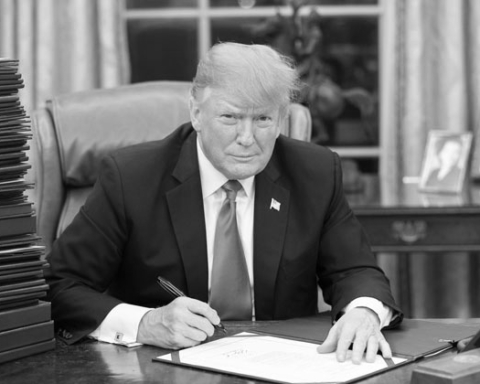By Dominic Gismondi, Staff Writer
Last week, media giants Twitter and Facebook combined efforts to censor an article from the New York Post, the nation’s oldest continually operating daily newspaper. This Orwellian censorship effort sought to block an exposé by the paper, which revealed Joe Biden and his son Hunter had been regularly abusing the elder Biden’s power as former vice president for both monetary and political gain.
This is not the first time internet-based monopolies tried to suppress inconvenient political truths. Last month, Facebook banned users who announced support of Kyle Rittenhouse, a teenager who was forced to defend himself after a group of violent rioters attacked, chased and tried to kill him. It is also a widely known fact that Google alters its search results to create what the Department of Justice calls, “Illegal, exclusionary business dealings that disadvantage smaller competitors, building an unfair advantage in search and online advertising.” That is to say, Google has been deliberately altering its search results to disadvantage political campaigns they disagree with, businesses that may incite competition with the tech giant and hide facts that may hurt Google or the candidates they support.
This new spate of open censorship has led many noted political figures to demand Twitter, Facebook, Google and other tech monopolies testify to their actions. The Department of Justice, along with 11 states filed an antitrust lawsuit against Google on Tuesday morning for such practices. Some have even called to disqualify the company from section 230 protections. Section 230 protections were a series of legal protections implemented in 1996 for online platforms. It allows these platforms to block and screen content posted by users without being considered a publisher. This is significant as publishers are legally responsible for all content posted on their website. Therefore, publishers could be held liable if a user, for example, breaks the law on their website, while online platforms cannot.
This one protection has allowed for the rise of social media and much of the internet in general, but it has been 24 years since the law was made, and, as Justice Clarence Thomas wrote in a recent statement, “When Congress enacted this statute, most of today’s major Internet platforms did not exist… Many courts have construed the law broadly to confer sweeping immunity on some of the largest companies in the world.” He goes on to question whether “the text of this increasingly important statute aligns with the current state of immunity enjoyed by Internet platforms.”
The question Justice Thomas poses is an incredibly important one, one that will likely alter the political landscape on the internet for years to come. Should section 230 immunities be limited to exclude those tech monopolies who use their popular platform to censor facts, harm political campaigns and suppress rival companies? In other words, should Twitter, Facebook, Google and any other company that selectively suppresses speech be considered a publisher and thus not be given the protections inherent to a platform?
The answer, of course, is a resounding yes. Monopolies that deliberately engage in misinformation campaigns must be stopped, especially when the spread of such misinformation can have broad-reaching implications on elections, careers and lives. There is no way the 1996 Congress could have known how much influence social media and search engines would have in 2020, and while the courts have ruled the definition of a platform very broadly in regards to what content may be banned, the actual text of the law seems to go against these rulings.
Section 230 specifically protects internet platforms that restrict the access or availability of material considered, “lewd, lascivious, filthy, excessively violent, harassing, or otherwise objectionable,” as long as the user is first notified of such restrictions. What this has come to mean is companies can restrict any content they wish if users are first notified, but this was clearly not the intent of the original law, given the list of permissible restrictions. It seems to explicitly wish to prevent political censorship, as it mentioned earlier that, “the Internet and other interactive computer services offer a forum for a true diversity of political discourse, unique opportunities for cultural development and myriad avenues for intellectual activity.” This would uniquely qualify political censorship as grounds for becoming a publisher and thus legally responsible for all content posted on their website, which the DOJ seeks to prove in this new antitrust lawsuit.
The actions taken by Twitter and Facebook regarding the Biden exposé have marked a turning point for politics, a turning point whose effects will likely be felt for years to come. To allow such business practices to continue will be to allow misinformation to persist. While today, the blocking of a New York Post exposé may be politically convenient for some, it sets a dangerous precedent that has far-reaching implications. The next Watergate or Uranium One scandal could come and go without anyone knowing, suppressed from search results and blacklisted on social media sites. It is time to call for antitrust measures against these internet monopolies and to bring an end to the overly broad interpretation of section 230, allowing the internet to become the “forum for a true diversity of political discourse,” Congress believed it to be.
gismondm19@bonaventure.edu








